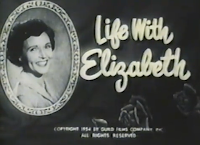The Jokers centres on the brothers Michael (Michael Crawford) and David Tremayne (Oliver Reed). The two of them are dissatisfied with their lives and long for recognition, even though they don't want to work for it. The two of them then decide to commit a crime as a sort of "grand gesture" that will bring them fame. Realizing that one can't be charged with theft unless they mean to permanently deprive an owner of their property, Michael and David set their sights on robbing the British crown jewels and then returning them.
The Jokers was directed by Michael Winner and based on a story by Michael Winner, with a screenplay by Ben Arbeid and Maurice Foster. In the mid-Sixties Winner was on a bit of a roll. His two movies before The Jokers were The System (1964) and You Must Be Joking! (1965). He would follow The Jokers up with I'll Never Forget What's'isname (1967). He would go onto such films as Death Wish (1974). Sadly, while Michael Winner displayed some talent as a director during his career, it seems that he was not a particularly nice guy. Following his death, in October 2017, three different women accused him of demanding that they show him their breasts. In 2019 actress Marina Sirtis intimated that she had been abused by Winner.
Winner was not the only person working on The Jokers who was on a bit of a roll in the Sixties. Although now best known for the musical The Phantom of the Opera, in the Sixties Michael Crawford established himself with roles in such films as The War Lover (1962), The Knack …and How to Get It (1965), and A Funny Thing Happened on the Way to the Forum (1966). By the time he appeared in The Jokers, Oliver Reed could already be considered to be a big name. He established himself with several Hammer Films, among them The Curse of the Werewolf (1961), The Pirates of Blood River (1962), and Captain Clegg (1962). He also appeared in The System. Much of the rest of the cast of The Jokers is notable as well. James Donald, who plays Colonel Gurney-Simms, will be recognized by viewers from such movies as Bridge on the River Kwai (1957) and The Great Escape (1963). Rachel Kempson, who had appeared in such films as Tom Jones (1963) and Georgy Girl (1966), played Michael and David's mother. British actor Peter Graves, who appeared in the films Give Us the Moon (1944), I'll Be Your Sweetheart (1945), and Alfie (1966), played their father.
The Jokers was shot on location in London, with many of the city's best known tourist spots appearing in the film. Among the locations in the film are the Albert Memorial, the London Zoo, the Stock Exchange, Piccadilly Circus, the Old Bailey, and the Tower of London. In shooting The Jokers, Michael Winner would cause some problems for directors wanting to film in London in the future. A smoke bomb was set off during a scene shot at Piccadilly Circus, resulting in chaos around the area. Worse yet, Michael Winner took off in a taxi and left other crew members to be arrested. Because of this incident no movies were allowed to be filmed in Piccadilly Circus until An American Werewolf in London (1981).
The Jokers premiered in New York City on May 15 1967 in New York City. It premiered in London on June 15 1967. It received largely positive reviews. Seen today The Jokers still holds up. For fans of Swinging London, the film offers a great look at many of the famous locations in the city at that particular time. As a caper film it features a particularly original heist. Indeed, while many caper movies see a team assembled for the robbery, in The Jokers it is only the Tremayne brothers who pull it off. As a comedy it is a funny send-up of the British aristocracy, media overkill, and even Swinging London itself.



